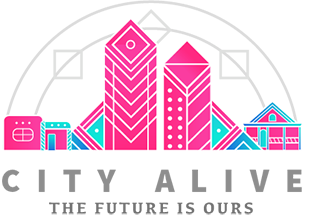How Yadira Exited a Cycle of Debt

A radical idea: What happens when you trust low-income families to know what’s best for them?
When Yadira Armendariz was pregnant with her third child, she knew that the income from her husband’s construction job wasn’t going to be enough to keep them afloat. Her family had already been racking up credit card debt just to cover basic necessities, and she wasn’t sure if she’d be able to go back to her job as an insurance agent while taking care of three kids. But she had a plan. One that would allow her to bring home more money and spend more time with her kids.
She wanted to open her own daycare center. After her own experiences of having her kids put on waiting lists at the many daycares around town, she realized that it was a good business to be in—with more young families moving to New Mexico all the time, there was no shortage of clientele. After her third was born, she went back to work—but at a daycare center this time, where she could learn more about the business.
After two years learning both on the job and in the classroom—Armendariz was also studying Child Development at CNM—she was ready to get serious about starting her own business. But finding start-up capital was a daunting task: her credit score meant she was only finding high interest loans with unforgiving payment terms.
When somebody from the Family Independence Initiative (FII) gave a presentation about the Co-op Capital loan program at one of Armendariz’s CNM classes, she saw the opportunity she had been waiting for.
FII gives loans to low-income families to help them get out of the cycle of debt—whether it’s paying off high-interest credit cards, getting a car to allow them to get to their new job site, or, as in Armendariz’s case, providing start-up capital for a new business. The Co-op Capital program, offered through a partnership with Nusenda Credit Union, is meant to overcome persistent barriers to accessing capital (like the credit score). The program doesn’t use the typical “5 C’s” to determine creditworthiness. Rather, organizations working in community use their own criteria to qualify people for loans. “Our decision to offer a family a loan is based on trust and the data we’ve collected from the family,” says Susy Sarmiento, site director of the Albuquerque chapter of FII. “We look at what they’re doing for the community. We look at their strengths and their assets beyond just the financial.” FII knows that many of their families may have bad credit from taking out lots of credit cards just to cover their basic needs.
Debt is a relatively new feature on the landscape of poverty in the US. Now, more than ever, the “bootstrap” myth that low-income families can lift themselves out of poverty with nothing but their wits is both outdated and oblivious to the overwhelming odds that they face. At the same time, public programs that require low-income families to prove how needy they are to get benefits inevitably set people up for failure.
“We believe that families don’t need saving—they don’t need to be told what to do. We just need to trust and invest in them,” says Sarmiento.
“I signed up on Tuesday and the money was in my bank account by Thursday,” Armendariz says of her Co-op Capital loan. She used the money to pay for licensing fees with the New Mexico Children, Youth, and Families Department. After this important step, she still had to find a location, build it out for childcare, and buy a van for picking up and dropping off kids. When she found an ideal spot in the South Valley, her husband helped build half-walls throughout the building so that caregivers could have a line of sight across multiple rooms, and so that natural light could get into every room. There’s also a full kitchen in the building, where caregivers cook meals for the children every day.
123 Child Development Center opened in April of 2019, with two children enrolled. Now, it has 83 kids, 14 staff members, and a waiting list for parents eager to get their children in. The development center cares for children from two months old to four years old, and has after-school care for older children as well. Armendariz teaches with a bilingual Spanish/English curriculum, and takes all of the kids out on field trips once a month.
Armendariz is now bringing home $6,000-8,000 per month, an increase in income that has helped her family pay off their credit card debt rapidly. She expects she’ll be debt free within the next five months. Besides the numbers, Armendariz says that opening the development center has made her life immeasurably better. “I get to actually spend time with my kids. I’ll sometimes bring them here after school, and they love it!” she says, smiling. “My oldest said that she’s proud of me.”
CONNECT THE DOTS
Co-op Capital is a relationship-based micro-lending program offered in partnership with Nusenda Credit Union. The program aims to widen access to affordable capital for lower-income entrepreneurs and entrepreneurs of color in Albuquerque. Co-op Capital removes traditional barriers to capital access by leveraging the strong relationships that member-based, cooperative and nonprofit organizations have with their communities to make loan determinations based on character, trust, and mission-based community values rather than standard measures of creditworthiness. Learn more here.





